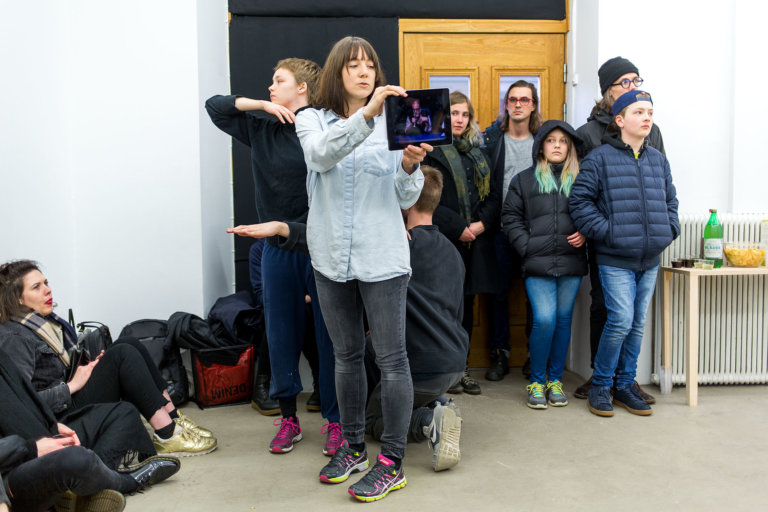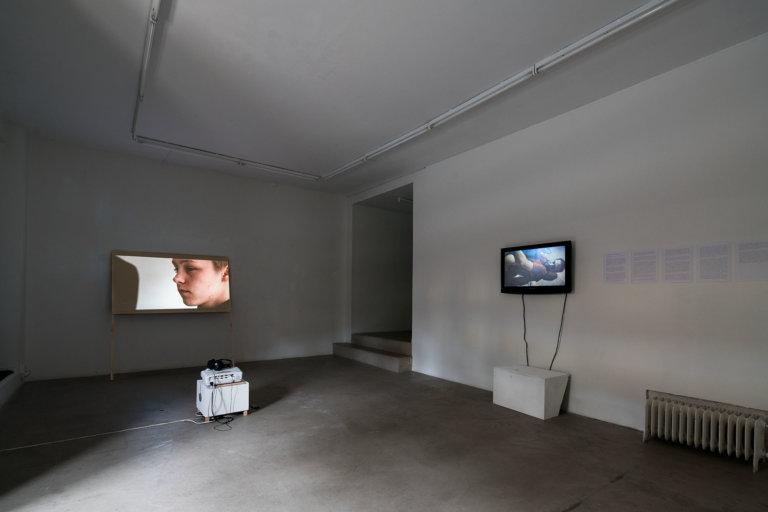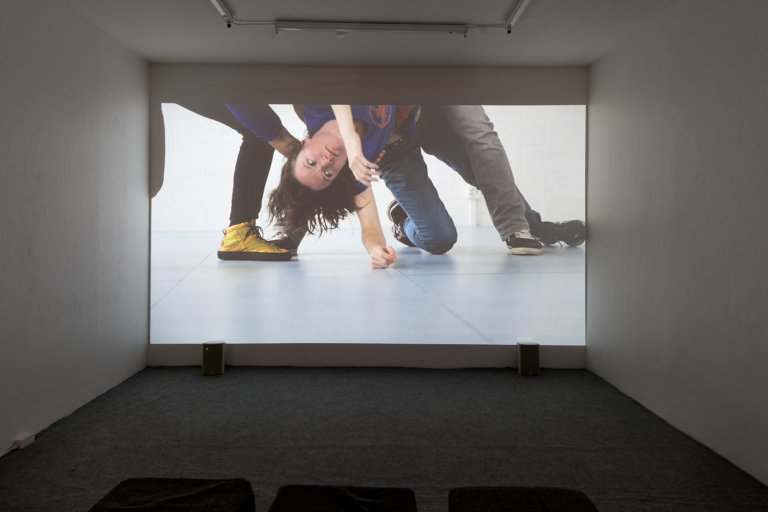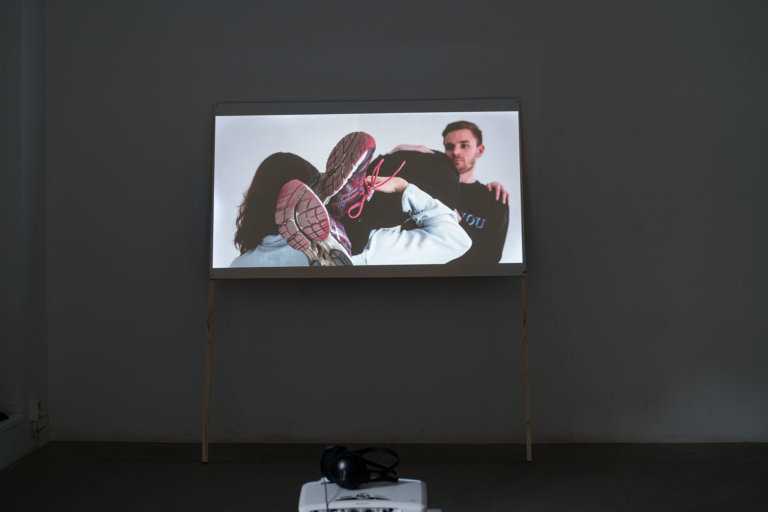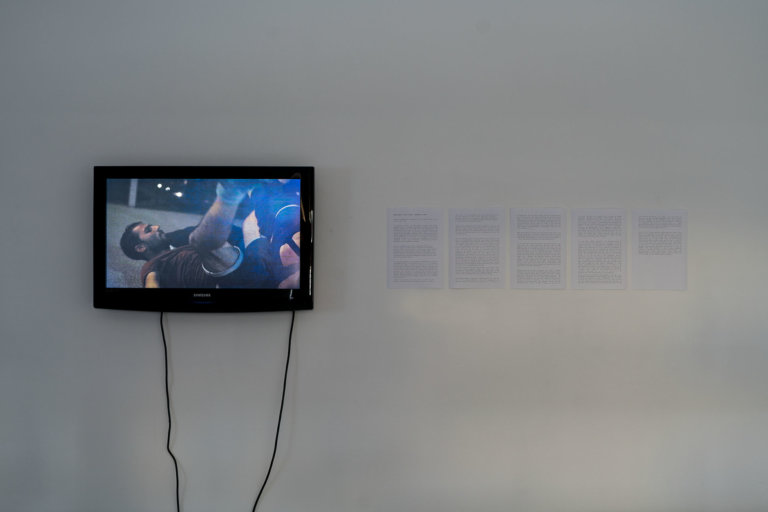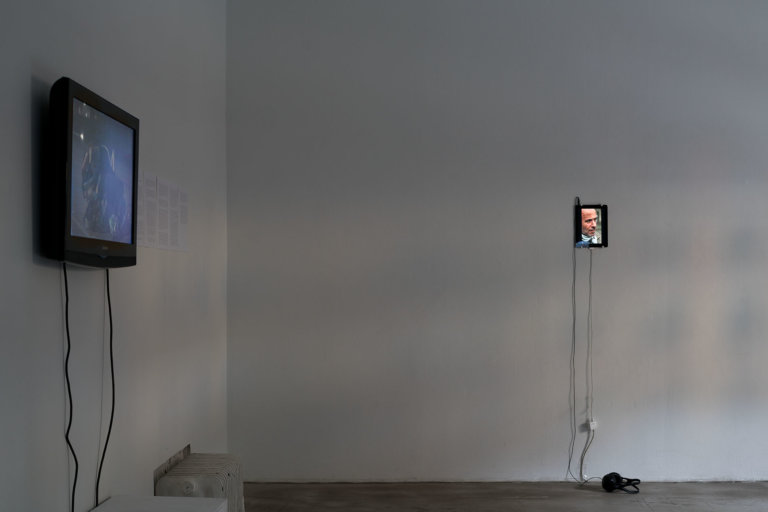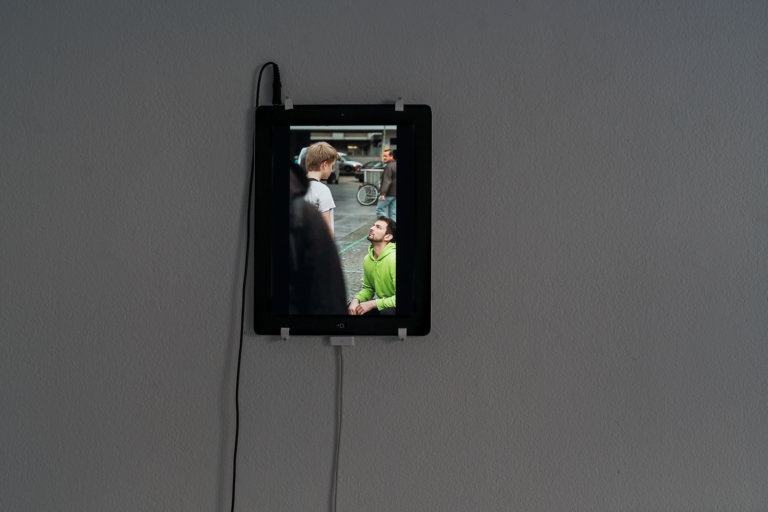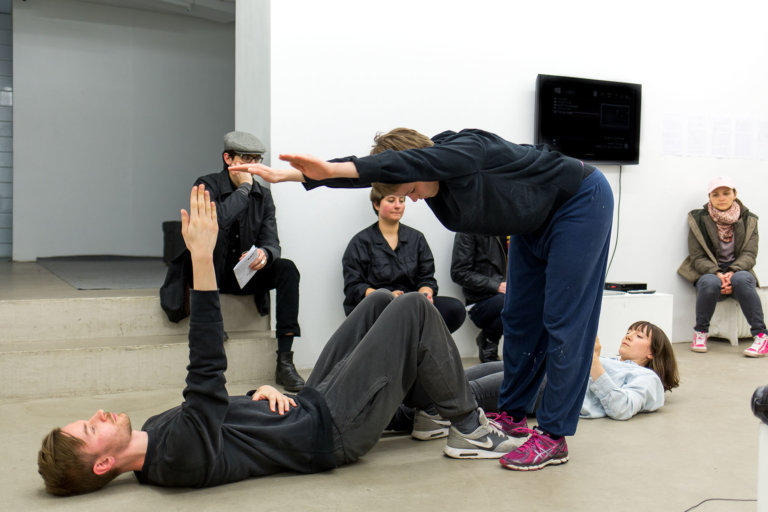Performers: Ingeborg Zackariassen, Adele St-Aubin, Felix Skalberg; choreography: Johanna Bruckner in collaboration with the performers.
The finance-driven deregulation of buildings in Gothenburg’s Eriksberg and the subsequent reorganisation of production conditions are the main focus of this performance.
Johanna Bruckner: REAL TIME UTOPIAS
Gallery Box presents Johanna Bruckner’s solo exhibition REAL TIME UTOPIAS from March 31st to April 30th 2017. Born in 1984 in Vienna, Bruckner, who works in the media of video and performance, examines social processes and socio-economic labor structures in her works, reflecting and ʿembodyingʾ them in movement and dance sequences. Bruckner’s work is rooted in the theories and practices of resistant bodies, and these determine her choreography and scores.
Johanna Bruckner uses dance as a political, social and queer voice that discovers its own organizing principle of social community and so provides opportunities for counteraction. In her works, the structures of resistance – for example in the form of labor struggle – are represented corporeally and thus actualized and made experienceable in multi-faceted ways. Beginning with historical movements, Bruckner’s work dissects contemporary neoliberalism with its digitized, monitored labor conditions; her work “Total Algorithms of Partiality” (2016 to date) uses Hamburg’s HafenCity as an example. In the first part of this tripartite work, on show at Box, the moving, performing bodies develop scores of their own algorithms which withstand the gentrified harbor city’s highly controlled monitoring systems and in doing so establish their own distinct language within this structure.
Box moreover displays the tripartite video installation “Rebel Bodies” (2015) which takes as its starting point the politicized interconnection of dance, labor and capital in historical form, here the ʿRevolutionary Dance Movementʾ, in particular the ʿWorkers Dance Leagueʾ of the 1930s. At that time workers organized dance groups to foster changes to their working and living conditions. Bruckner creates movement scores to study and initialize the role of dance in the materialization of changes in the politico-economic conditions to which the workers/dancers were and are subject, both from a historical and a contemporary viewpoint. Revolutionary energy and the desire for social change have unified various dance movements through the years.
In close collaboration with the dancers and choreographer, Johanna Bruckner creates movement sequences that feed into films, video installations and live performances, originating connections that mirror the bodily interactions. Bruckner’s interest brings into focus the relationships between her subjects, dominated by real-time performance, the labor algorithms, and knowledge in our contemporary cultural-economic reality, examining the possibilities for both individual and co-operative counter-hegemony. Bruckner’s works revolve around questions of (re)formulating today’s paradoxes, new opportunities for social coherence in contemporary labor, and living conditions in digitized neo-capitalism, using forms of dance and insurgent bodies to express her findings. She creates complex think tanks that are theoretical, bodily and affective in their conception.
Johanna Bruckner is an artist based between Hamburg and Zurich. She studied Fine Arts, Cultural Studies and Social Anthropology in Vienna, Hamburg, Stockholm, Berlin and New York. Her work has been included in exhibitions at the Migros Museum for Contemporary Art, Zurich;Villa Croce Museum of Contemporary Art, Genoa; Kunsthaus in Hamburg; Kunstverein Harburger Bahnhof; and at the Fundacio Miro, Barcelona. Johanna Bruckner was a scholarship holder for the overseas artist studio program at the Banff Center for Visual Arts in Canada. In 2016 she received the Hamburger Arbeitsstipendium for Fine Arts.
Text: Julia Thiemann
Hendrik Zeitler
Publications and Files
- Publication
- 185.3 KB
- Download ( pdf )
